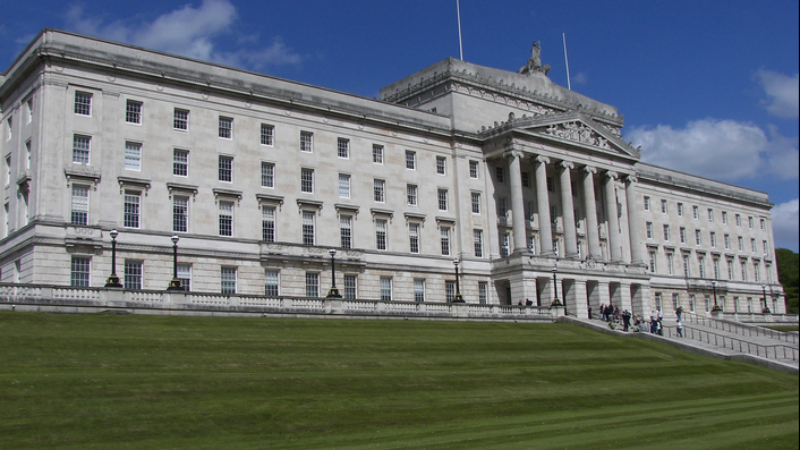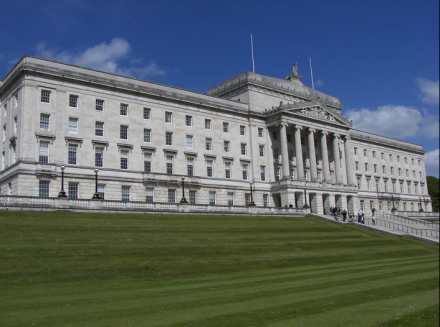

The result of the June 8 threw a Northern Irish party into the forefront of British politics – as part of an attempt to shore up Theresa May’s government – and all of a sudden politicos and journalists were in a muddle trying to understand the workings of one part of our nation. That it took a general election for some to care is shameful.
Wherever you stand on the question of Northern Ireland’s status – in favour of a united Ireland, a backer of the union as it stands, or completely ambivalent- the fact remains that it is a part of our country, and it retains certain laws that would have shamed Britain decades ago, nevermind in 2017.
No access to reproductive healthcare, with women at risk of prosecution for trying to have an abortion, even though England, Wales and Scotland have had these rights since 1967: it is impossible to overstate how awful this is. I remember having conversations with older members of my family about the realities of Britain before this legislation – hearing of friends dying in A&E of septicaemia, rendered infertile, or children left without mothers. Research tells us that there is no reduction in demand when abortion is not safe and legal – the only thing that changes is that poor, vulnerable people who can’t afford the ferry across the Irish Sea end up going to backstreet providers. One in three women in Britain have an abortion in their lifetime, with 95 per cent experiencing no regrets. There is no evidence that the needs of any Northern Irish women are any different.
Whilst Northern Ireland has provided civil partnership rights for same-sex couples, as it was under direct rule from Westminster when Tony Blair’s government passed the legislation, equal marriage does not exist in the North. Whilst the Republic approved equality through a referendum, the Northern Irish parliament has been unable to pass the legislation. Now, that’s not because it doesn’t have majority support amongst MLAs, but because of the vagaries of the petitions of concern – a controversial system by which draft laws can be forced to pass a higher threshold.
The DUP, who the Tories are reliant upon to form a government, have blocked it in Belfast – and they were able to do it by getting 30 members together representing one community to vote it down. The petition of concern system is a key feature of the power sharing deal in the nation and exists to stop tyranny of the majority riding roughshod over either group. Up until the most recent elections to Stormont, the DUP alone had enough MLAs to vote down any legislation that they chose through this function. The deal agreed in the Good Friday Agreement is dependent on nationalists and unionists working together, and this is of course a good thing, but that doesn’t mean that some features are not open to abuse.
It’s easy to paint the DUP as the bogeyman of the region, and the sole reason why some of the most socially regressive policies exist, and they don’t exactly help themselves at times. But they are not the only party in the region whose politics would shock the average Scot, Welsh or English person. Sinn Féin, aside from their close connection to armed republican groups, are also anti-choice, a stance influenced by their close connections to the Catholic community and their status as a party for the whole of Ireland. They are however in favour of same-sex marriage. The UUP, the more moderate unionist party who now have no MPs, have a similar stance – supportive of equal marriage, but they have a conscience stance for abortion, so it is up to the individual politician or member. The non-aligned parties like the Alliance are not large enough to be particularly significant and break through this dominance of polarised identity politics.
Even Labour’s sister party, the SDLP, has some unsavoury positions – whilst in favour of same-sex marriage officially, their close links to the Catholic church manifests in being staunchly anti-abortion – even in circumstances of fatal foetal abnormality or rape. They are also nationalist, more softly than Sinn Féin, and this is completely compatible with Labour’s position, but that we are at all seen to be condoning their other positions is thorny. These issues aren’t even up for debate in Britain anymore, and yet there’s so little consideration of how one nation in our union doesn’t provide this most basic of legislation.
Labour’s 2017 manifesto did include provisions to seek to change the abortion problem in NI, and figures such as Cat Smith and Diana Johnson – amongst other excellent high-profile Labour women – have pushed for a more strongly pro-choice position for the party.
The general election left Northern Ireland with only DUP and Sinn Féin MPs, and this polarisation of the political landscape there, shown also in the latest Stormont vote, can be no good thing. For the average Protestant unionist voter, the only choice to stop Sinn Féin seems to be the DUP, and the opposite seems true for Catholic nationalists. This lack of a positive choice seems at least part of the problem.
There’s a continued muted debate on whether the British Labour Party should begin to put up candidates, which it currently does not, despite having a few thousand members there.
It is an option, though unclear whether it would solve all or indeed any problems, but there are compelling arguments for providing the hopeful non-aligned vision NI people need. The Alliance seems to not succeeded in this, though there is no guarantee that it would work for a Northern Irish Labour Party. Could a party even be neutral on the nation’s status when it stands all across the Union? It would seem tricky, and it is hard to argue that it wouldn’t affect Labour’s position as a broker of the power-sharing deal, and having this as a priority when our first ambition is – rightly – to be a party of government in Westminster presents a risk. The Tories are rightly being vilified for the easy way in which they consider going into coalition, or a confidence and supply arrangement with the DUP – risking their neutrality – and if we were to stand there, this could be an issue.
The Good Friday agreement was one of Labour’s proudest achievements in government, and whilst there seems to be no single neat answer to NI’s good governance problem, it reflects the problem that political attention was elsewhere until the election pushed it up the news agenda. We should care about the people of Belfast as surely as we do the people of Bristol, and always work to better their lives. We cannot claim that British politics has always done this.
The language used to distance the other home nations from one-quarter of the union is stark – but they are of this United Kingdom and it would be shameful for that fact to be forgotten.




More from LabourList
Antonia Romeo appointed to lead civil service as new Cabinet Secretary
‘If Labour is serious about upskilling Britain, it must mobilise local businesses’
Stella Tsantekidou column: ‘What are we to make of the Labour Together scandal?’